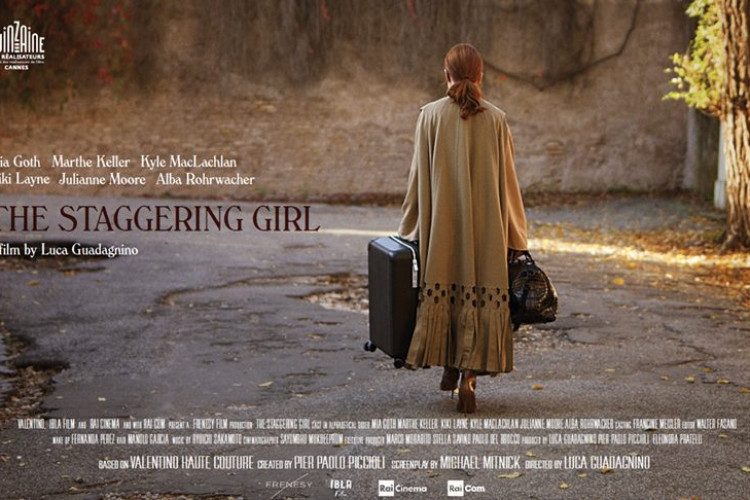









Despite our best efforts, Bergas and I only managed to attend the last day of the 10th annual Java Jazz Festival held at the Jakarta Convention Centre in Kemayoran. And to be quite honest, it was perhaps just as well that we only attended that particular day, as for the most part the selection of artists that performed on the Friday and Saturday were for us as bland as a steamed cucumber resting on a plate of boiled rice.
Sure, there were sporadic injections of exciting local talent such as Tomorrow People Ensemble, the Barry Likumahuwa Project, Sandy Winarta, Indra Lesmana and a few other notable gems, but who would want to travel up to North Jakarta, struggle for hours on end to find a decent parking spot, pay over-the-odds for overpriced food and drinks only to be served some Agnez Mo, JKT 48, Dave Koz and Maliq & D’Essentials? Well perhaps more open-minded individuals would, but alas both Bergas and myself are insufferable jazz and music snobs.
Moving on and to tone down the cynical rhetoric, we specifically chose the Sunday as it hosted the performances of the legendary Roy Ayers and the much-loved hero of left-field soul-jazz, the Robert Glasper Experiment. Conveniently for us, both performed on the same stage with only 75 minutes separating the two performances. Thus without further ado, the write-up below will dissect those two anticipated performances in greater detail.
Roy Ayers
The name Roy Ayers glowed like a pair of cat’s eyes illuminated by a car’s headlights when I first saw his name on the list of performers. This virtuoso vibraphonist was responsible for pioneering a particular funky strain of jazz that has left its unmistakable mark not only in the world of jazz but also disco, hip-hop, house and beyond. He started his performance at 6pm in front of an eager and highly expectant crowd.
No sooner had the announcer read out his name, a great cheer reverberated around the A2 BNI hall and DJ (Total) Eclipse from the X-Ecutioners took to the stage to provide a 15-minute lesson in funky breaks and head-nodding turntablism. And just when you thought he was there simply as an opening act, you realise that there were no drum kits present onstage, signifying that the turntables were also there to stand in as the rhythm section. While I’m an avid fan and champion of DJ-ing and turntablism, I feel that this decision slightly diluted the overall performance of the band as it limited the freedom of movement and improvisation of the drums, piano and bass.
When Mr. Ayers finally entered the stage to a ruckus cheer, he was accompanied by a saxophonist (playing both the alto and soprano variants) as well as a backing singer (and part-time percussionist). For the most part the performance was a recital of Roy Ayer’s greatest and funkiest hits, prompting the crowd to join-in a number of enjoyable sing-alongs throughout the gig. One notable highlight of the evening was when Roy’s electric vibraphone malfunctioned to hilarious consequences. Bereft of the star performer who was busy shuffling back-and-forth trying to figure out what on earth went wrong, the soloing responsibility lay on the saxophonist who churned out solo after mesmerizing solo. After 20 vibraphone-less minutes, the electric-vibraphone gods (or perhaps the engineer) managed to set things right and Roy duly delivered head-spinning solos much to the delight of the crowd and served as a fitting end to the memorable 75-minute performance.
The Robert Glasper Experiment
And then there was Robert Glasper and his band of merry cats. While I’ve already witnessed his band’s mesmerising performance in Amsterdam a couple of years back, this year’s edition was no less impressive with the presence of a near complete line-up with enigmatic drummer Chris Dave the only absent member.
Before the Robert Glasper Experiment took to the stage, a certain Allen Stone -a bloke who I’ve never heard of before- was in the middle of completing the last 20 minutes of his performance at the adjacent stage. And for the record, it was quite outstanding. He may look like a Nordic hippie, but there aren’t any doubts as to his fantastic vocals that have seem to be dipped in the proverbial Soul Jar.
His set opened with the frankly perplexing award with an obscure title handed out to him by the organisers of the event. Mr. Glasper was almost at a loss of words during his acceptance speech (though most likely due to being genuinely confused as opposed to being overwhelmed by the occasion). As soon as the mini award ceremony was over and done with, the band kicked into gear with their brand of soulful modern jazz that drove the young-ish crowd into a frenzy. Every single band member was on top of their game with vocalist/saxophonist Casey Benjamin leading the line with his vocoder-filtered soulful vocals and absolutely intense sax soloing. True to form, the Robert Glasper Experiment played a mix of their original compositions along with a selection of covers that only vaguely resembled their originals, including Bill Withers’ Lovely Day, Frank Ocean’s Pyramids, Daft Punk’s Get Lucky and Nirvana’s Smells Like Teen Spirit
Another notable aspect of the performance was the sheer brilliance of the band members, from Robert Glasper’s piano playing, Casey Benjamin’s sax solos, Derrick Hodges’ funky yet melodic bass playing and the drum-machine like punctuality of the drummer whose name escapes me. When their performance came to and end the crowd were pleading for an encore (or two) yet Mr. Glasper politely declined, citing tight scheduling from the organisers as a reason.
All things considered, it was a very enjoyable performance from the two acts we watched with my only gripe being the lack of seats provided for Robert Glasper’s performance (as their brand of music doesn’t particularly evoke dancing, hence being more suited to a sitting crowd). As far as the festival was concerned, it was a shame that there were no slots afforded to the living legends of jazz such as Ornette Coleman, Pharoah Sanders or Sonny Rollins, especially considering that this was the 10th anniversary of the festival. Yet as far as adhering to the tagline of ‘Bringing The World To Indonesia’, I feel that the Jakarta International Java Jazz Festival 2014 just about lived up to its promise. Here’s looking forward to next year’s edition.











